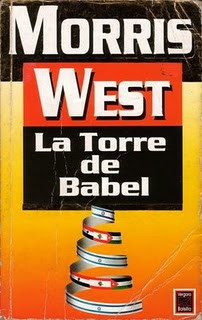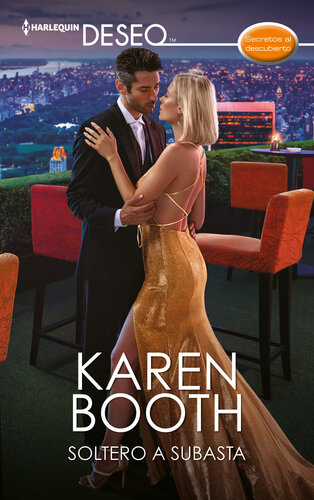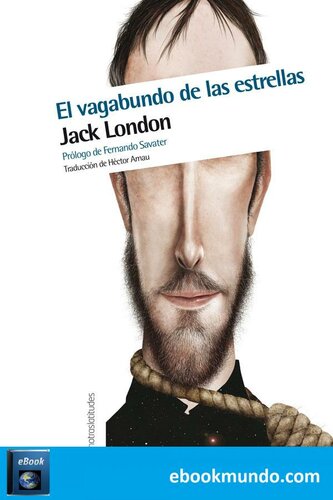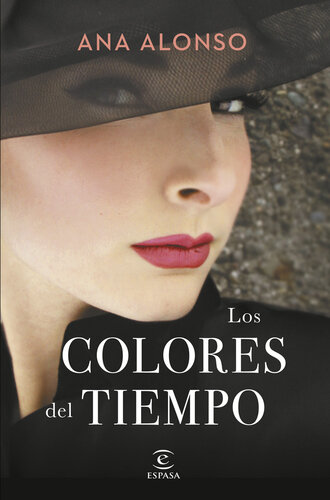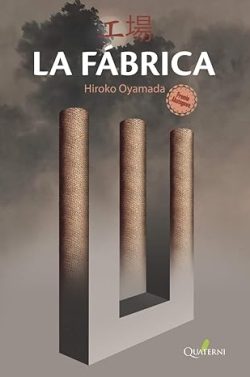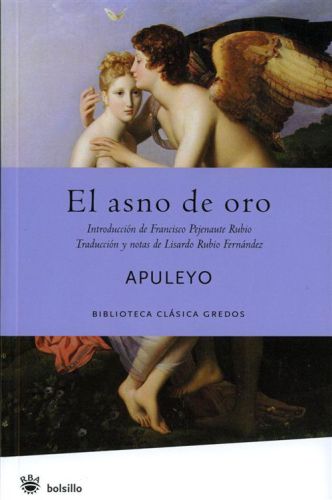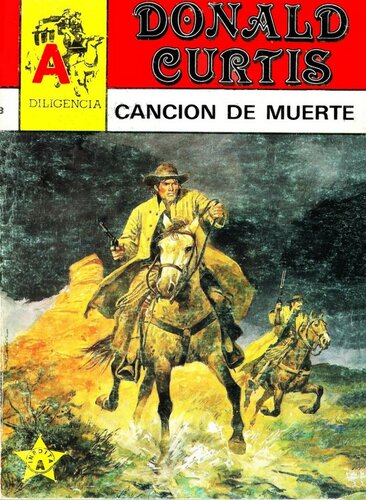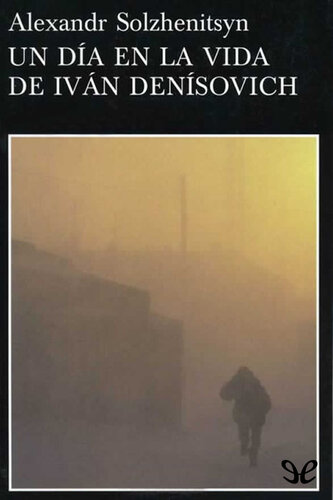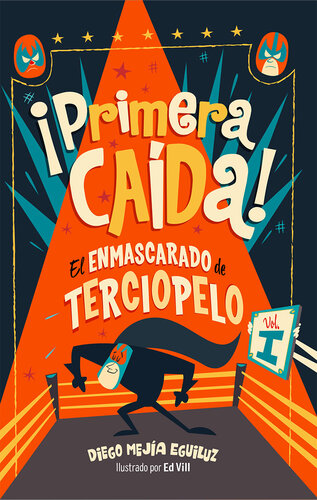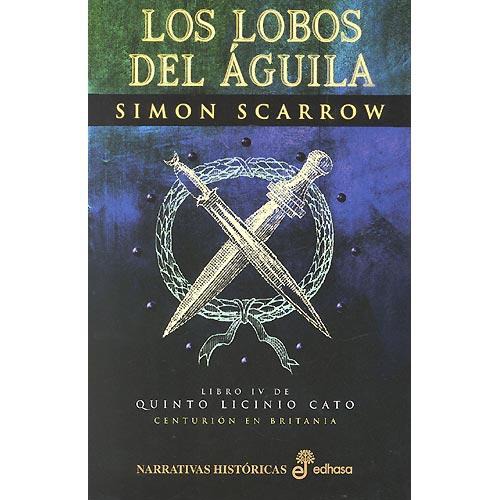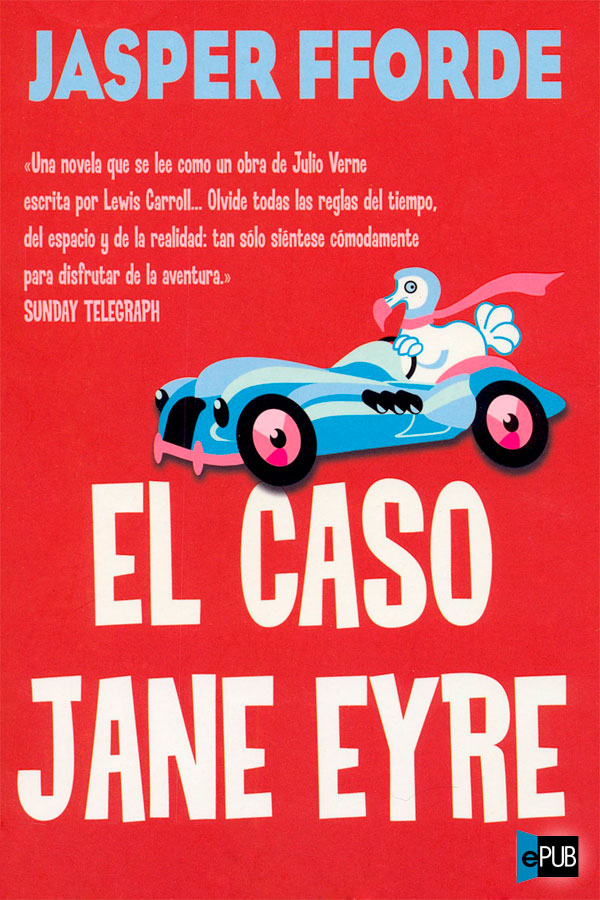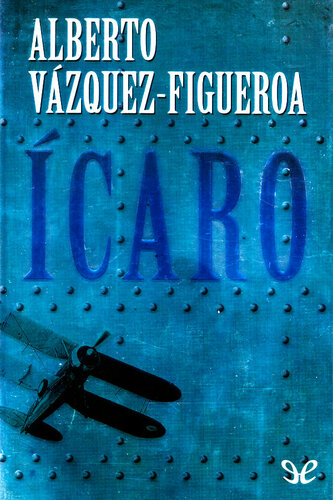oleebook.com
El mapa del tiempo de Palma, Felix J
de Palma, Felix J - Género: Ficcion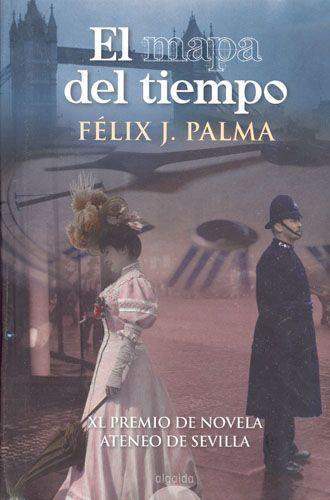
Sinopsis
Críticas Literarias Regina Iraelunes, 08 de diciembre de 2008El Mapa del Tiempo, de Félix J. PalmaPREMIO ATENEO DE NOVELA 2008El Mapa del TiempoFelix J. PalmaEditorial Algaida628 páginasArgumento:Londres, 1896. La empresa de viajes Temporales Murray ofrece al público la posibilidad de viajar al año 2000. Solo el escritor Wells, autor de La máquina del Tiempo, duda de la posibilidad real de tal hecho. Pero el joven y enamorado Harrington, desea viajar al pasado para evitar un crimen, mientras la inadaptada Claire sueña por su parte con el futuro y un amor romántico.Comentario:El Mapa del Tiempo es una novela que mezcla varios subgéneros literarios con gran acierto, de una forma fluida. Ese mismo eclecticismo permite hablar de ella como obra de aventuras, de misterio, ciencia ficción, fantasía, romántica, histórica incluso, tomando como guía los cánones del folletín decimonónico.Lo primero que destaca nada más abrirla, ya en la primera página, es lo bien redactada que está. Esto que debería ser la norma, se convierte en algo a reseñar en los tiempos que corren donde se observa cierto descuido por parte de muchos autores en los elementos formales de la escritura. Palma conjuga de un modo magistral una prosa literaria, de frases elaboradas y de una gran calidad, con una historia muy interesante y ciertamente ambiciosa en sus pretensiones. Nos deslumbra haciendo una especie de compendio de todos los iconos literarios e históricos del XIX: Wells, Verne, la fe ciega en el progreso de la ciencia y en las maravillas que vendrían, Jack el Destripador, Stoker, El hombre elefante, El Hombre Invisible, la máquina del tiempo del propio Wells. La ambientación es extraordinaria, y además, está introducida con muy buen tino, aprovechando las circunstancias que la propia trama provoca. También me ha gustado que no nos lo explica todo como si se dirigiera a una persona del siglo XXI. Palma nos hace creer que estamos en el siglo XIX y da la información y el punto de vista que tendrían gentes de esa época. Huye del didactismo en el apartado histórico, lo cual demuestra que es un autor con recursos que busca un resultado artístico por encima de todo. Como diría él, el bestseller no tiene por qué estar reñido con la calidad literaria.
Descargar
Descargar El mapa del tiempo ePub GratisLibros Recomendados - Relacionados
Reseñas Varias sobre este libro
Time travel! Jack the Ripper! Automatons! What's not to love?!? Well, as it turns out, almost everything.
I know everyone else here is raving about it, but I could barely stomach The Map of Time; it took every ounce of stick-to-it-iveness I could muster to get through this convoluted, interminable literary maze. WHERE, I ask you, was the EDITOR in this hot mess? There is the kernal of a potentially good story here, had about 2/3 of the fat been excised. The only way it could have been more byzantine is if Nancy Grace had shown up to interrogate Inspector Lusk about the Ripper murders.
It's not the guy can't write. He's a decent, if grandiose, storyteller and he mimics to perfection the florid style of the period he set this novel in. And the theme Palma writes about -- choice and the Butterfly Effect of exercising it -- is one that is both powerful and personal. Plus, he knows how to turn a phrase: "...loneliness that sticks to him a birthmark."
But come on, Félix, enough with the meandering, the inconsistencies, the convenient last-minute reprieves for waylaid story-lines. And the unnecessary reminders from the narrator about his omniscience have to go.
I was all set to love this book, what with it being about the re-writing of the history of the earliest science fiction and all, but it wasn't to be. The one good thing that came out of it? It inspired me to read the original H.G. Wells' The Time Machine, and it was love at first sight.
This ARC was provided to me by the publisher via my local Indie bookstore, and no money was exchanged.2012-reads arcs-galleys-proofs-review-copies fiction ...more122 s Lena229 101
Interesting literature game postmodernism-style: unusual mixture of Victorian steampunk on the verge of sci-fi. But author plays with the readers expectations so vaguely that you hardly notice sci-fi parts till the very end. But as in the most literature experiments this one sometimes has too much of everything: Jack the Reaper and Herbert Welles meet on the same pages along with Terminator- apocalypse, parallel universes and time travelling.
Can't say that it's bad but often very confusing.
77 s Laura3,867 93
I was so excited to get this book - the back flap suggests a Jasper Ffordian adventure starring H.G. Wells. However... not so much. This novel is in three parts, only lightly interwoven. One of those threads is H.G. Wells, another is Gilliam Murray and his Trip to the Year 2000. The author has written this as a pastiche of Victorian novels, filled with digressions, overly adjectived, and a tad rambling.
Part One is the story of Andrew, an upper-middle class boy who falls in love with a beautiful whore, Mary Kelly. Their relationship progresses to the point where Andrew announces his love for her to his father and promptly gets disinherited. Lost, he wanders back to her home/hovel, only to arrive minutes after Jack the Ripper has visited his fifth victim. Eight years later he's prepared to kill himself in that same room, until his cousin Charles, with the help of Mr. Murray and Mr. Wells, convinces him that by traveling through time he has saved Mary.
Part Two is set in Murray's Time Traveling fraud, with a young, bored woman taking the trip to the year 2000 only to fall in love with the Savior of the Human Race, Derek Shackleton. Derek - aka Tom - falls in love with her, too; back in the "present day" they spend one night and several passionate letters declaring their love (Tom's letters are written by Wells).
Part Three finds us contemplating three murders, committed with some weapon unknown to the era. Scotland Yard's detective has decided that the only possible suspect is Mr. Shackleton and convinces his superiors to allow him to travel to the year 2000 to arrest Shackleton. Murray, afraid his huge hoax will be discovered, convinces Wells to find the real killer... and thus commences a very complicated, confusing explanation of time travel, the Library of Truth and other things, as Wells tries to prevent The Invisible Man from being published by the supposed murderer (who will also kill Bram Stoker and Henry James, stealing Dracula and The Turn of the Screw). This is the least comprehensible part of the book, with what appears to be three time travelers, including one claiming to be Wells-of-the-future, running around.
Had the book focused on Part Three, with less rushing around and more mystery, I would have enjoyed it far more. However, the jacket flap also says that this is an International Sensation, so what do I know?
ARC provided by publisher.mt-bookpile-2011-201557 s Traci188 79
The less said about this book the better. Do you enjoy magic tricks even though it's all sleight of hand? Can you simply enjoy the construction of a novel? I loved every moment I spent with this new and talented author. A little bit of The Prestige, some Neil Gaiman, completely original. I'm not even sure where to put this title. Fantasy? Fiction? Science Fiction? Steampunk? It's all of these. One of the best, and one of my favorites, of the year. Beautifully written.favorites steampunk45 s Marian18
I hated it. I hated the cliched, overwrought, terrible writing, I hated the conceit of the omniscient narrator/author who breaks in to speak directly the reader, I hated the characters. None of the characters are sympathetic or even interesting. The cast is divided into unlikable liars, and the pathetic, unrealistically stupid people who believe them. The only exception is the character of HG Wells, whom the author uses to smugly whine about how hard it is to write fantasy/sci-fi. It's insufferable. Also, the plot sucks.
Here's an example of the writing:
"...and yet at the same time this mysterious woman possessed a charm as unmistakable as it was elusive. HE was unsure exactly what it was that captivated him about her. It might have been the contrast between her frail appearance and the strength radiating from her gaze; a gaze he had never seen before in any of his conquests, a wild determined gaze that retained a glimmer of youthful innocence. It was as if every day the woman was forced to confront the ugliness of life, and yet even so, curled up in her bed at night in the dark, she still believed it was only a regrettable figment of her imagination, a bad dream that would soon dissolve and give way to a more pleasant reality. It was the gaze of a person who yearns for something and refuses to believe it will never be hers, because hope is the only thing she has left."
OH MY GOD IT'S SO BAD. AND THE BOOK IS 600 PAGES LONG.43 s Frances192 340
Rollicking Good Fun!
Until I was several chapters into this book I was beginning to wonder if I wanted to continue. At times I groaned while reading, sometimes smiled, and often stopped to ponder certain paragraphs. It was a story of many things; imaginative, different, strange, but yet, soon became compelling enough to finish. When I finally read the last page, I felt I had been thoroughly entertained and pleased to have read such a creative and unique book.
32 s Ana538 107
Update: 2a leitura em Agosto 2021
Dez anos após a primeira leitura, posso afirmar que este livro continua no top dos meus livros favoritos de sempre!
Apesar de bastante descritivo em algumas partes, as descrições são muito visuais, muito cinematográficas e não nos custa nada entrar nesta viagem.
Três histórias, cada uma com os seus próprios personagens fantasticos, e a ligar tudo, o escritor H. G. Wells e o seu romance A Máquina do Tempo. Wells é a figura histórica (entre várias que surgem ao longo do romance) que vai articular todas as histórias, com inúmeras reviravoltas e surpresas que nos fazem duvidar do que é real ou fantasia.
Continua a ser 5* para mim!
Julho 2011
Este livro é simplesmente genial!! A escrita entusiasmante e com apontamentos cómicos, rica em detalhes e pormenores apresenta-nos uma hábil mistura de personagens inventados com figuras histórias verídicas; de policial com ficção científica; de real com imaginário.
São-nos apresentadas três histórias com, aparentemente, pouco ou nada em comum, mas que se revelam interligadas por um sábio fio condutor, que nos deixam completamente viciados na história. Como se fosse o ar que respiramos, precisamos sempre de mais e em maiores quantidades, tal é o ritmo imparável da acção.
Aconselho sem quaisquer reservas!!books-about-books fantasia favoritos ...more29 s Metodi Markov1,442 359
?????, ?????????? ?????? ??? ???????????? ?????? ? ? ?????? ????? ????????? ?. ??. ????!
????????? ?????????, ????? ????????? ? ???? ?? ?????? ????? ???????????? ???? ???????.
?????????? ?? ?????? ?? ?? ???????!
?? ?????????? ??? ? "???????? ?? ???????", ?????? ?? ?????? ??????? ?? ???????? ?? ???????? ???.
Artworks by Michael Michera:
2016 adventure favorites ...more29 s Anna86
Review originally posted here: http://pocketfulofbooksblogger.blogsp...
I think this book was written just to annoy me. I am sitting here with 5 pages of notes which I made whilst reading it that detail approximately one hundred reasons why I detested it from the first page to the last and why my boyfriend was forced to read some parts aloud to me because I became physically unable to finish it without assistance...my impulse to put it down was just too strong. But I did it. And now I am going to have to tell you why it is awful. This isn't going to be pretty.
-Here are the Top Ten Reasons Why I Hated This Book-
1. Firstly, I HATED the narrator. He occasionally provides voice of God insights which persistently interferes with the story. It was utterly infuriating. When things were happening, this unexplained and un-bodied voice would come out of nowhere with such gems as, 'this part is very boring so I'll spare you the details...' No THAT was very boring and you should have spared me THAT. The voice is no-one. It is just the writer. Using a shoddy plot device to conceal bad writing. It doesn't work.
2. Figures of speech and cliche are used constantly. Wrongly in most cases too. They are usually completely inappropriate considering the context they are used in and the phrases that are said were probably never used in Victorian times anyway. One the author loves is 'he felt a shiver down his spine'...I counted 6 uses of that alone. One is too many. Metaphors and similies are also employed pretty much every single paragraph, for example, 'the immense greenhouse was as graceful as a swan poised for flight'. HOW CAN A GREENHOUSE BE GRACEFUL?!
3. AM I SUPPOSED TO LIKE THESE CHARACTERS? They are horrible, shallow, awful people. The story kicks off with two cousins- Andrew and Charles- who are spoilt brat rich kids who whine about their parents. Charles is basically Lord Henry from 'A Picture of Dorian Gray'; he is decadent and smarmy but without the charm, wit and charisma that Lord Henry is imbued with. Andrew is spineless, pathetic and preposterously brooding. Apparently when he leaves the house he 'gazes at the moon for several minutes' and he 'watches a rose wilt in his hands'. Yeah those are really quotes. This is what I am dealing with. We are supposed to sympathise with these characters; people who regularly, by their own confession, go out and use women and are not ashamed in the slightest, in fact they find it highly amusing. I don't.
4. The characters (and author) are too aware that they are trying to portray Victorian times. No one, while living in the time that they live in, looks around and says things 'Ah yes I and my surroundings are an example of my time...look at the rigid boundaries we Victorian people have and how strange the things we do are wearing corsets and carrying parasols'. No one actually thinks that at the time- you are submerged in your own culture and you think you are the pinnacle of civilisation; Victorians didn't think they were old-fashioned that is just us projecting and comparing our time onto theirs. This really, really irritated me as you were never submerged in Victorian times and there is absolutely no atmosphere whatsoever. The whole marketing of the book is centered on the Victorian aspect but it completely fails.
5. All of the references to historical figures from the Victorian era are so forced that it is cringey to read. It feels the author just wrote about them with Wikipedia open and used the facts he found there to structure whole chapters. There is one chapter that is basically H.G Wells' autobiography; Wells just dumps huge chunks of explanation about his life and works , 'this author wrote this book in this year, which I then read and then decided to write my book in this year on this day.' It's so unnecessary and feels completely amateurish.
6. OK this is what REALLY got to me about this book; the portrayal of women. Wells cheats on his wife because, and get this, she is a mechanical, cold, baby-making machine who is 'unsuited to pleasure', so cheating on her is the answer to solve poor H.G Well's inability to have sex with her because of her incurable and unfair 'frigidity' (actual quotes). Yep he has 'solved it' by sleeping with another woman who he later leaves his wife for. AND WE ARE SUPPOSED TO SYMPATHISE WITH WELLS IN THIS INSTANCE. GAH!
His new wife, who asks visitors to tea, is described as showing 'the practical nature of her sex'. THANKS FOR THE COMPLIMENT FELIX PALMER. Nothing an offensive mass generalisation of an entire gender to keep me reading.
Claire Haggerty, the main character in the middle section of the book, is described negatively as 'an impregnable fortress' and 'not of good breeding stock'. Yeah OK, the author has tried to make her seem a liberated woman because she doesn't care for marriage and babies and is logical rather than silly, but then he is also saying she is the EXCEPTION. Most women are crazy baby-makers so let's find the one who isn't and write a book about her. Also, in one sentence she says that marriage is 'legal prostitution', and then in the next she is talking of, 'a romantic passion to which she longed to surrender herself.' And when she does have sex, she actually enjoys it (OMG WOMEN CAN ENJOY SEX) and this is considered by the men in the novel to be a miraculous event. Wells's wife barely omits a 'polite sigh' when he sexes her, so he obviously needs to leave the description of Claire's enjoyment of sex out on the counter for her so she can become more 'sexually liberated' you know...and scream and pull his hair and fake an orgasm probably. The problem can't be that he is rubbish in bed...noo it must be that his wife is frigid. Yeah makes sense.
Claire's sex scene is an abomination. It is a description of a low budget porn film in which the woman fakes it...but the author probably believes it's real. Claire is a virgin. She is TRICKED into losing her virginity to a man in a cheap guesthouse who she thinks is someone else and by the end of it she is a 'quivering wreck' because it is sooo pleasurable; she feels 'a harp would when it's strings are plucked for the first time'. She screams, she hair pulls, she is in ecstasy. Because that is what losing your virginity is . It is tender and you have an epiphany as to how much pleasure the human body can feel. YEAH THAT IS WHAT IT'S LIKE. Later on in the novel the guy who she slept with, thinking he was someone else, the guy who TRICKED her to get her into bed, goes back to her and there is no explanation. End of story. Soo...did she find out who he was? Is she angry that some guy tricked her into losing her virginity? That he got H.G Wells to write love letters for him and pretend he wrote them? We never know because apparently it doesn't matter. Apparently true love is so magical that none of that would matter to her...even though her love is based on absolutely NOTHING but lies. Women will do anything for love after all.
Another thing that bothered me about it was that later on, when reflecting upon it, the man in question refers to Claire's vagina as a 'terrifying entity' and, wait for it cause this is the worst and most horrible description I have ever heard of ANYTHING EVER, 'a sucking orifice'. Those are actually words written together in a novel that has been published.
This novel goes by the whole FALSE premise that Victorian women were scared of sex and frigid and everyone was much too prim and proper to discuss it. NOT TRUE. Just as in any society, sexuality was a huge business in the Victorian era. I hate this quote from Claire,
'In my own time, girls are brought up to repress their instincts, especially in well-to-do families mine. Unfortunately, it is widely believed that the sole purpose of the sexual act should be procreation, and while men are allowed to express the pleasure they derive from physical contact...we women must show perfect indifference, as our enjoyment was considered immoral.'
This is all wrong. This novel is set at the turn of the century...women were not seen this at all in this period. They were seen more as ticking time bombs of lust that, once unleashed, was insatiable. It says so on Victorian Web, which I consider to be a reliable source. So there would be nothing strange about Claire's behaviour after sex. I mean, has the author not read Dracula. Bram Stoker features in this novel yet it seems as though the author hasn't actually read it or he would know that women enjoying being penetrated, whether by fangs or penises, was not a new concept at this time. In fact, it was everywhere. Women enjoyed sex TOO much which is why they needed to remain chaste. After sex, Claire cannot love any other man, ever, as her love for the trikster is so strong and feverish and she will kill herself if she doesn't get a letter from him. Yep, where is your rational female character now?
Another female character, Lucy, is talked out of freaking KILLING SOMEONE because a policeman who fancies her says, 'don't stain your lovely little hands with blood' and she 'gazes up at him admiringly'. WHAT IS THIS SHIT.
7. The author is really, really inappropriately scathing about the appearance of the so-called 'Elephant Man' Joseph Merrick. The author goes on and on about what a 'hideously deformed creature' he is and how it makes one gasp and shudder and turn away to even lay eyes on him. I just found it really heartless and inconsiderate as there are a lot of people who have deformities and diseases which make them look different in some way and it seems appalling to write about disability in this way...making him seem inhuman and only worthy of pity. He was a person and should be written about as one not as some novelty in a book
8. Dialogue. Where is it? There is almost no dialogue at all in this almost 600 page novel. This means that not only is is dull and tedious, it is also rubbish at characterisation and you never feel you know any of the characters in any way. For the whole of Chapter XIII there was no dialogue whatsoever until the last line. Ridiculous. We are just TOLD that things happen but never actually see or hear them happening; there is no subtlety. We are not required to make up our own minds about characters based on evidence, but to just go along with whatever a snippet of a sentence tells us about them. One example; we are told in this chapter that Wells' wife's mother is a horrible person. We are told she reduces her daughter to 'a shivering wreck'. Do we meet this character? No. Is there any dialogue featuring her at all? No. This happens constantly throughout this novel and I HATE IT.
In this chapter there is also a 2 page plot synopsis of The Time Machine by Wells. I didn't care for it. I didn't care for it at all.
9. After one of the characters believes he has time travelled, he describes that all he could smell was, 'singed butterflies'. GOOD. MAKES SENSE. WE'VE ALL SMELT THAT.
10. The time travel. Oh dear. It goes from real to false to real to false so it's hard to write about it clearly. All I do know is that it is complete bollocks that the whole of England (and the world) bought a story as flimsy as the one given in this book. So much so that they believe a tiny room is the whole of London and that there is nothing suspicious about travelling to the future in a train with blacked out windows.
A good thing about this novel is that the chapter are short, so when I told myself I couldn't continue reading I set myself goals to the end of chapters which meant I could finish it. So that was good.
There is a quote in this book that reads, 'his writing was infantile and verbose in equal measure, the characters were poorly drawn and the dialogue dull as dishwater.' This quote, referencing a bad novel given to Wells to review, sums up 'Map of Time' for me. Maybe I just didn't get it. Maybe this is a hilarious satire of Victorian novels and a pastiche that went so far over my head that it tricked me into thinking it was just terrible writing. Perhaps. But in my opinion that is no excuse for such a bore of a novel as this.
22 s Oscar2,029 524
Este libro es todo un homenaje a los precursores de la ciencia ficción, y a H.G. Wells en particular. Mediante todo un collage de personajes reales y de ficción, de novelas y de películas clásicas pertenecientes al fantástico y la ciencia ficción, Félix J. Palma ha construido un nuevo producto que se vale por sí mismo.
Londres, 1896. La novela empieza con Andrew Harrington escogiendo una pistola con la que suicidarse. El porqué no se puede contar, ya que se va desvelando en el transcurso de los capítulos, aunque mucho tiene que ver el sanguinario Jack. De igual modo, tenemos otro personaje, Claire Haggerty, que no siente ningún apego por la época en la que le ha tocado vivir, y que ve una posibilidad de cambiar esto cuando conoce la existencia de la empresa de los Murray, Viajes Temporales Murray, que, como su nombre indica, tiene como propósito los viajes al futuro, concretamente al año 2000, donde la Humanidad lucha por su supervivencia contra los Autómatas.
Félix J. Palma ha escrito la historia de tal manera que es imprescindible no saber más sobre la trama, ya que los giros inesperados hacen que la visión del lector cambie radicalmente. 'El mapa del tiempo' transcurre a modo de folletín, y encontramos continuas referencias a personajes reales e inventados, siendo el propio Wells uno de ellos, sino el más importante. La novela está excelentemente escrita, y mantiene la atención del lector hasta una última parte inmejorable.5-estrellas acción-aventuras ciencia-ficción ...more21 s ???????? ????????532 75
??????? ?? ??????? ? ????? ?????? ???????????? ???????! ???? ????? ?? ?????? ????? ??????? ?? ??????? ?? ?????? ???? ?? ??? ??????, ??? ???? ? ? ????? ??? ?? ??????? ???????? ???????, ? ??? ?????????? ????????, ?? ??????? ?? ???????? ??? ??????????? ???????, ? ????? ? ????? ? ??????. ??? ????? ?????? ?? ??????? ??????? ????, ????? ????? ? ?? ????????????, ?? ????? ????? ???? ?? ??????...
????????????? ???????? ? ?????? ??-????? ??????? ?? ????? ????, ?????? ?? ???????? ???-???? ?? ???????????? ?????? ?? ???????? ???????, ????? ? ?? ??????????? ????? ? ??????? ?????????. ? ??????? ?? ??????? ??? ??? ??????? ??????? ?????, ????? ?? ???????? ??????? ??... ??????? ?? ??????? ? ???????, ??, ?????? ???, ??????? ? ????????? ??????????? ?? ?????????????? ?????, ????? ? ???????? ? ????? ??????? ????!
????? ?? ??????? ???????????, ? ???? ??? ??? ?? ??????????? ? ????? ???????, ????? ?? ?? ?????????. ?????? ???????? ??? ????????? ? ?????, ?? ????? ? ???????? ??????, ?? ?? ????? ? ?????? ??? ?? ??????????, ????? ???????? ???? ?? ?? ????????? ?????, ?? ?? ????? ????? ?? ????. ???????? ???? ?? ??????????? ?????, ??????? ? ???????? ????? ?????, ????? ???????? ?? ???????? ? ????, ?????? ??????????? ?????????: ????????? ?? ?????????? ????????? ? ????? ? ?? ???? ????????? ????? ??? ?????????, ??????? ?? ?????? ?????? ? ????????? ?????? ?? ????? ????, ????? ????, ????????? ?? ?????? ?? ?????. ????? ?????, ???? ?? ???????? ??? ?????? ????????, ?? ?? ??????? ? ???? ? ?????? ?? ??????? ?????? ????????, ?????? ?? ???????????, ?? ?????? ???? ???.19 s ??????? ?????Author 29 books333
???????????? ????????? ????????????? ??????, ? ????? ???????? ??????? ????????? ?? ????????? ??? ??????????? ?? ???????? ???????????, ? ??????? ? ??????? ?? ???? (??, ???? ?? ????? ?? ? ??????????, ?????? ? ????? ???????) ??? ?? ??? ?? ?????? ???? ? ????? ? ??????? ??????????? ?? ?? ???????? ? ????????. ?? ?????????? ?? ??????? ????? ?????????, ???? ? ???????????? ??????????? ????????? - ?????????? ???? ??????????, ????????????? ???? ????, ??????? ?????, ???????? ?????? ???? "???????-????", ?????????? ??????? ????, ???? ?????? ? ????? ??????. ??????????, ??? ????? ?????????? ??????????, ?????????? ??????????? ??, ?? ???????????? ?????? ?? ??????? (???-???? ??????), ????? ?? ??? ?? ???-???????, ???? ???? ???????? ??????????? ? ?????? ?? ?????????? ?? ?????? - ?????-???????, ?????, ? ???? ? ?????? ????? (?????? ? ?????? ???????????????? ?? ???????? ? ???).
? ... ??? ?????? ?? ??????, ????? ???????? ?????????? ??? ???????????? ?? ????? ?????; ??????, ????? ???? ????? ? ?????? ?? ???? ?? ?????? - ???? ??? ???? ?????????? ????? ??? ??????, ?????? ?????? ???????, ???? ?? ??????? ????? ????, ???? ?? ?????? ????????? ?? ?????????? ????, ???????? ?? ??????, ???????? ???? ?? ???? ????????? ? ??? ????????, ???????? ?????????? ???????? ?? ???? ????????? ?????!????????-??????16 s Luanne Ollivier1,792 110
Do you ever start a book , get a few pages in, recognize that you are inextricably hooked already and jump for joy when you realize there are 600 more pages left to savour?
That's exactly how I felt after the first two chapters of Félix J. Palma's novel The Map of Time.
It started off in one of my favourite time periods - Victorian England - with an unknown narrator telling us of a young man's visit to Whitechapel in 1888- the time of Jack the Ripper - and more.
"Yes, I know that when I began this tale, I promised there would be a fabulous time machine, and there will be, there will even be intrepid explorers and fierce native tribes - a must in any adventure story. But all in good time, isn't it necessary at the start of any game to place all the pieces on their respective squares first? Of course it is, in which case let me continue setting up the board, slowly but surely..."
At the heart of it all - Murray's Time Travel. Could the fourth dimension really have been discovered in 1896? ..."what was underneath the world, what was behind reality." Can the Murray Company really take travellers to the year 2000? All of Victorian England would to believe so. Jules Verne and H.G. Wells and their futuristic novels are all the rage.
H. G. Wells plays a prominent role in this tale, as well as other historical figures including the Elephant Man, Henry James, Bram Stoker. Palma creates many other characters, all incredibly well drawn, leaping off the page and into my imagination with ease.
The book is written in three parts, with each part approaching time travel from a slightly different angle, with the third part tying it altogether. But not tying it all up with a neat little bow, for Palma plays with us many times throughout the 600+ pages. We are kept on our toes, wondering if time travel was/is possible....
There is no way to pigeonhole this book into any one genre. It is incredibly imaginative, ingenious, whimsical and addictive, combining history, mystery, romance, adventure and fantasy into a page turning, clever, keep you on your toes, thought provoking tale. What would you do if you could go back in the past or see what's coming in the future?
Palma is an absolutely fantastic storyteller. I was captured from first page to last. For those who are looking for something completely different, pick up The Map of Time, releasing today.
16 s Cortney40
This book was a big disappointment to me. The cover, the synopses, the all had me ready to read a book about the mysteries of time travel. Instead, set in late Victorian era London "The Map of Time" gives readers a bit of a love story, a bit of mystery, a bit of science fiction, even a bit of biography, but it fails to fully develop any of these aspects and left me feeling cheated on all fronts.
Palma does a fine job of setting the Victorian stage. Historical fiction lovers will gobble up references to locations, people, and current events that almost disrupt the flow of the story by being too frequent and without impetus. The writing itself is Victorian in flavor with a flowery prose and the faux pas of author intrusion, which I found distracting. Other than that I find the book difficult to sum up or review because it's just not cohesive. Divided into three stories it relies on common characters, mainly the character of H. G. Wells, and the concept of time travel, to make it into one, but it just feels the author is attempting too many things.
There are hints throughout the book of a greater discussiona deeper meaningbut the allegory is left incomplete. References to class discrepancy, gender issues, and colonialism are present but never expounded on and leave the reader hanging. And if I started enjoying the book in the last 50 pages I can only say that I wish the first 500 had been so engaging. Some people will really this book, and for a light read it isn't bad, I just can't give it a rave review.fiction-fantasy16 s nettebuecherkiste540 143
London, Ende des 19. Jahrhunderts: Der junge Andrew Harrington will sich das Leben nehmen. Vor Jahren wurde seine Geliebte Marie Kelly Opfer des berüchtigten Jack the Ripper und er meint, nicht mehr damit leben zu können. Sein engster Freund hat jedoch eine Idee für ihn: Ein Unternehmer bietet Zeitreisen in das Jahr 2000 an, er hat selbst schon an einer solchen teilgenommen und wurde im verwüsteten London Zeuge des furiosen Kampfes des Helden Derek Shackleton gegen die herrschenden Maschinenmenschen. Wenn eine Reise ins Jahr 2000 möglich ist, warum dann nicht auch eine zurück in das Jahr, in dem Jack the Ripper sein Unwesen trieb? Es müsste möglich sein, Marie zu retten, schließlich wurde der Mörder gefasst und man müsste ihn nur rechtzeitig abfangen? Der Zeitreisenanbieter Murray verweist Andrew und seinen Freund an den Schriftsteller, der die Zeitmaschine auf Papier erfunden hat: H. G. Wells
Dass wir es hier mit einer alternativen Geschichte zu tun haben, wird bereits klar, als festgestellt wird, Jack the Ripper sei gefasst worden, denn dies ist, wie wir alle wissen, niemals passiert. Doch in welchem Ausmaß Zeitreisen hier thematisiert werden, hatte ich keinesfalls geahnt. Man braucht etwas Geduld mit diesem Roman und darf keine Probleme mit vielen Figuren haben, die in unterschiedlichen Teilen des Buches im Vordergrund stehen. Es gibt folglich keinen klaren Protagonisten in Die Landkarte der Zeit und der Plot ist, anders kann man es nicht sagen, chaotisch. Doch wer sich darauf einlässt und die Handlung einfach mal auf sich zukommen lässt, wird hier hervorragend unterhalten. Wenn man ordentlich gräbt, findet man sicher Logiklücken, Zeitreisen kommen nicht ohne Paradoxon aus. Doch dieser Herausforderung stellt sich Palma und meistert sie, wenn auch nicht unbedingt mit Bravour. Das unvermeidliche Paradoxon kommt zur Sprache und wird lässig und geschickt umgangen. Das hat mir gefallen.
Sprachlich ist anzumerken, dass es die eine oder andere schwülstige Stelle gibt (das Feuer seiner Geliebten, Glut einer unverdienten Leidenschaft usw.), aber auch ein paar ganz gefällige Metaphern und Vergleiche:
und schaute die Schriftsteller an mit einem Lächeln, das an den abblätternden Putz einer Wand erinnerte. (Seite 612)
Das kann ich mir richtig schön vorstellen, finde ich äußerst gelungen. Im Übrigen liest sich das Buch gut.
Gefallen hat mir auch, in diesem Roman wieder auf mein Lieblingssthema, die Unzuverlässigkeit der Erinnerung, zu stoßen, wobei das in einem Buch, in dem sich alles um die Zeit dreht, auch naheliegend ist.
Ich kann gut verstehen, dass manch einer sich von der Verworrenheit des Romans überwältigt fühlt, doch wer ihn so annimmt, wird seinen Spaß daran haben. Ich freue mich darauf, die beiden Fortsetzungen zu lesen und bin gespannt, was Palma uns da auftischt. Außerdem habe ich jetzt Lust, mal wieder H. G. Wells zu lesen.belletristik historische-romane18 s Mari Carmen490 77
Con paciencia, con tiempo, así debes tomar esta historia, porque te engancha, pero te pide tiempo.
Un homenaje a la obra de H. G. Wells. ¿Son posibles los viajes en el tiempo?
Deseando seguir leyendo.
16 s Bry635 97
I wanted to this book so much. It is supposed to be an international phenomenon of a book. It is all about time travel, romance, history, and features H.G. Wells as a major character. All of that leads me to think it would be incredibly intriguing and probably make for a wild ride.
But this was SO NOT THE CASE.
The basic story is comprised of 3 parts - the first is about a man who is mourning the loss of a woman he loved and was slaughtered by Jack the Ripper, and is convinced he can go back in time to save her. The second part is about a woman who tired of the Victorian era travels through time and ends up in the year 2000 and England is ruled by robots. Finally the 3rd part is about Wells trying to help Scotland Yard solve a gristly murder. Basically it is 3 different books in 1 all tied together by illusions and philosophy.
Despite the disjointed plot, the biggest problem I had with the book was the author constantly addressing the reader directly. It started on page 2 and seemed as if it was happening every other page from then on. Whats worse is how pompous the author comes off - always preceeding his interjections with "You must allow me" or "Please permit me". It makes him seem as if what he has to say about the story is so much more important than the story itself.
Palma himself seems to be a good writer but with so many plots happening at once he tends to jump from one idea, one situation, one plot to another without wrapping up the first or even making a decent segway.
In the end I just found the book boring and the constant author interruptions seriously annoying, and just not worth devoting my life to 600 pages. 2011 dnf fantasy ...more14 s Angela326 72
The Map of Time is a wonderful novel in three parts. In the first, H.G. Wells assists in traveling to the past to prevent a murder. In the second, H.G Wells bridges the gap between the future and the present. In the third, H.G. Wells must make a decision that will chart the course of the future. The fist two stories contain romantic elements while the third is a bit of a mystery. All of the stories overlap a bit bringing different characters together at different points in time. The end result is a novel that explores the theme of time travel completely and questions whether one should undertake to change past events if one has the opportunity.
Felix J. Palma writes beautiful prose that wanders through time. The narrator of the story occasionally addresses the reader directly to ponder events or to move the reader along to another part of the story. Although this does draw the reader out of the story a bit, I found that it gave the novel the feeling of truly listening to someone tell this story as if I were sitting right next to the narrator.
The only thing that prevents me from giving The Map of Time the full five stars is the amount of repetition it contains. While some of this is completely necessary to bring characters up to speed on events as they enter the story at different points, there were times when it felt the narrator was summarizing events up to that point for the reader. These summaries felt unnecessary and added quite a bit of length to the book.amazon-vine14 s Tammy Dotts104 5
The Map of Time presents three separate stories set in Victorian England. In the first, Andrew Harrington seeks to travel through time to save Jack the Rippers last victim, with whom Andrew was in love despite the differences in their social class. The second centers on Claire Haggertys desires to find a world where she belongs; she settles on the year 2000 when England has been overrun by robots. The final section has H.G. Wells determining which universe is real and which is merely a parallel universe destined to end abruptly.
If that seems confusing, youre not far off. The three stories are tied together loosely by the illusion and reality of time travel and by the presence of Wells.
The ideas behind the novel are promising. The first two sections look at the ethics and paradoxes of time travel, while simultaneously rejecting it.
Whether Wells helps Harrington really save Mary Kelly, thus creating a parallel universe in which she and Harrington can live out their lives together, isnt as important as the effect of believing in possibility. wise, Haggertys search for somewhere her 21st-century outlook is at home and her beaus search for meaning in life doesnt depend on his true identity or whether Haggerty visits the future. Much Dorothy, the answers they seek were at home all along. To explain more about the ins and outs of the Harrington and Haggerty plots leads into spoiler territory.
Not that theres much to be spoiled. The Map of Time doesnt live up to its promise nor its book-jacket description. The characters are superficial and show no objection to being pushed into various set pieces by their overly vocal creator. Imitating the dear reader voice of some Victorian authors, Palma inserts himself as a commentator on action and character. At one point, he tells the reader hes going to skip over a scene because it would be boring otherwise.
Wells is an integral part of Harringtons story and pops in and out of Haggertys. He receives his own focus in the final section of the book where he, Henry James and Bram Stoker are told a time traveler is about to kill them and claim some of their works as his own. Wells is perhaps the most well-developed character of the novel. Not surprising as Palma has historical details to draw on. But the section feels underdeveloped and tacked on, as if Palma wanted a better hook to draw in readers.
He may not have needed one. The Victorian era is a favorite setting for authors, particularly those who dabble in time travel without jumping into steampunk. its cousins, The Map of Time makes sure readers revisit the high points of the time as if moving through a checklist: Jack the Ripper, Joseph Merrick, electricity, social mores. Some of these are relevant to the plot; others, mere waystations before the last page. Wells meeting with Merrick is the best nod to the genre tropes, with the conversation having an emotional resonance absent from the rest of the novel.
The main problem with The Map of Time isnt that its a bad novel. Palmas writing can be engaging, and the pages turn quickly. Readers looking for a great time travel story or Victorian novel or simply a good read, however, will be disappointed. Too often, Palma neglects what could be a good novel in favor of moving quickly to the next section or wrapping up the novel. Glimpses of a novel that could have been devoted to Tom Blunts life in the lower classes or one about Wells personal life may cause readers to wish they could find a parallel universe to read these (possibly) more rewarding stories.fiction science-fiction13 s Laurie972 41
To finish this 600 page book, I had to do something unusual: take a break in the middle and read something else before going back to finish it. Ive never done that before, but I had to get away from the all seeing, all knowing, all talking narrator who goes on a garrulous guest at a party who traps you in the corner with an unending story. The story seems interesting, so you dont flee outright, but you do keep an eye on potential escape routes.
I grabbed this book because it was set in Victorian London and was supposed to be about time travel. It incorporates as characters some historical figures, mainly H.G. Wells. I assumed it would be a rather steampunk-ish novel. I was wrong.
The novel is divided into three sections, each dealing with a purported episode of time travel. The common thread is H.G. Wells, who keeps getting dragged into peoples time travel plots- because of his recently published novel The Time Machine when all he really wants is to be left alone to write. Although it is not known until later, all three sections are also linked with huckster Gilliam Murray, owner of Murrays Time Travel, his company that takes paying guests to visit the year 2000. And the underlying thread, the one of philosophy and science, constantly brings up the question of what happens when you change the past- is time immutable? Is it changeable? Is there more than one universe and more than one time? Do humans have free will?
I did somewhat enjoy the book- when I went back to it, I finished it rapidly. I would have enjoyed it more if it had been shorter, not because I dont have the attention span for long books but because theres a good deal of extraneous matter in this novel. The entire biography of H.G. Wells up to the point of the story really isnt germane to the tale, and there are some truly eye-glazing sections where stories are repeated in full just because they are being told to a new character, and ones where people are just moving about. Dont read it if youre expecting action filled steampunk; its more along the lines of a book that was really written in the past.
13 s Eve398 84
The Map of Time by Felix J. Palma succeeded for me in so many levels that it will be a challenge, albeit a pleasurable one, to adequately explain how satisfying it was. Curiously, my admiration for its execution has increased the more I reflect upon it.
If youre a science fiction fan, most especially an H.G. Wells fan; if you love time travel stories; if you love Victorian novels (the way novels were written in the Victorian era and novels set in that time) this is the book for you. The Map of Time is a dazzling, entertaining read for the summer ... or for all time.
I must caution, however, not to pay too much attention to the official synopsis. While it is not technically misleading, it only applies to a quarter of the book. If you read with the synopsis in mind, youll read most of the novel wondering where its going.
The Map of Time is roughly divided into three main story arcs which at first seem very loosely interwoven. Set in 1896 London, the first part of the book is about the doomed love affair between a young society gentleman, Andrew Harrington, and the beautiful prostitute Marie Kelly. On the brink of suicide over the way the affair ended, Harrington seeks the services of Gilliam Murrays Time Travel company, which claims the ability to transport those willing to pay a fortune to London in the year 2000, for a brief glimpse of the future. Of course, once we hear the description of what the world is in the year 2000, we immediately know that the Time Travel company is a sham, but the novel detours from Harringtons tragic story to Gilliam Murrays adventurous tale in how he was able to find the hole in the fabric of time. From Murrays Time Travel Company, the desperate Harrington then ends up at the door of H.G. Wells himself, the famous author of The Time Machine, to demand that he help him travel back in time.
The second major story arc involves a surprisingly poignant romance between one of Gilliam Murrays hired hands, handsome but poor Joe Blunt, and a young society lady who falls too successfully for the Time Travel Companys sham, Claire Haggerty. If youre a fan of the movie, Somewhere in Time, I am, you will love this part.
In addition to H.G. Wells, other figures of that era enliven the narrative, Jack the Ripper, John Merrick the Elephant Man, Bram Stoker, and Henry James.
For about two-thirds of The Map of Time, the author plays around with the idea of time travel, setting up extraordinary scenarios before drawing the curtain aside to reveal wizardry at work different from magic or science. The final, and most breathtaking, part of the novel is where all the themes of the tangential storylines merge and the uniting figure of H.G. Wells, the father of time travel fiction, takes full, center stage. And just to encourage all of you hard core science fiction fans to persevere through the seemingly picaresque parts that come before this is where all the playing around comes to an end and we get the full time travel treatment in concentrated form parallel universes, loopholes in the time continuum, alternative histories, as well as the truth of the titular, elusive Map of Time.
"'What would the world really look in a hundred years' time?' he wondered...It was a pipe dream of course, but there was nothing to stop him from pretending he could do it, he told himself, settling back in his seat and ceremoniously pulling the lever down, experiencing the inevitable frisson of excitement he felt whenever he performed the gesture.
"However, to his astonishment, this time when the lever had come to halt, a sudden darkness fell on the attic. The flecks of moonlight shining through the window seemed to withdraw, leaving him in total dark. Before he was able to understand what was going on, he was overcome by a dreadful feeling of vertigo and sudden giddiness. He felt himself floating, drifting through a mysterious void that could have been the cosmos itself. And as he began to lose consciousness, all he managed to think was either he was having a heart attack or he really was traveling to the year 2000 after all."
I got my science fiction fix by the end, but The Map of Time also offered some fascinating thoughts: that love, in a sense, is an equal or greater force than the mythical ability to cross time. Love can bridge distances and transcend obstacles time travel cannot; it can change a predestined future as powerfully as going back in the past to render a different outcome in the present.
And, as The Map of Time involves several characters as writers, would be ones and real-life ones, even the power of ones imagination, its "infinite capacity," is comparable to time travel. The novel ends aptly, with H.G. Wells pondering on the miraculous experience of reading that we, as readers are not merely spectators, but in having reading a book set in 1896, have also, in a way, journeyed through time and space ourselves.
12 s William Thomas1,231 2
Felix Palma is a fairly talented writer of prose, but not a talented storyteller. Not in the least. Although the writing is smooth and velvety, the book is actually a jumble of confused plot lines mixed up in a hundred different stories that do nothing to capture the imagination or tie up the frayed ends.
I'm not a fan of time-travel stories. I think they're terrifically lazy. They seem to me to be so popular because everyone fantasizes about traveling through time- mostly in some selfish way that has only to do with their own lifetime and their own terrible choices. And Palma actually does a good job of admitting this same sentiment in The Map of Time, stating that everyone has that yearning. My problem with it is that unless you're Kurt Vonnegut, there is never any weight to a time-travel story. Palma gives us a sense of gravity here with the setting and the use of historical figures, but when we strip that away, it's really nothing at the center.
And can we seriously just stop using Jack the fu$&ing Ripper already? It makes me want to skip over every single page that mentions the crimes or the murderer. It's just silly anymore.
Grade: C-
12 s Xabi19902,017 1,078
5/10 en 2011.
No me ha gustado mucho. Es CF ambientada en la época de H.G.Wells (que sale en la novela). Para mi gusto el autor se va mucho por las ramas respecto a la trama principal.
Lenta, lenta, leeeeeeeenta. Que no coy a continuar con la trilogía, vamos.
(Y conste que me gusta el Steampunk)12 s Viktor StoyanovAuthor 1 book181
????? ?? ?????????? ?? ??????? ?????? ??????????, ?? ?????????? ?? ???? ?? XIX ???, ?? ??????????? ??? ???????, ?? ?????? ?? ????? ????? (?? ???? ?? ????????, ?? ????????? ?? ? ??????????), ?? ????????? ?? ???? ?????????? ? ???? ?? ????? ??????? ????? ?? ??? ???. ?? ????????? ?????, ????? ????? ????????? ? ??????? ?? ?? ????????? ? ????????, ?? ?????????? ?? ????????????????, ????????????? ?? ??????? ? ?????????? ??? ???????. ??????? ?????? ????????? ?? ?? ???????? ? ???? ????? ?? ?????? ?? ???? ??????? ?? ???????????? ?? ? ?? ??????? ??????. ????? ?? ???????????? - ?????? ????????? ?? ??? ????? ????.
? ???????? ??????? ?? ??? ??????????, ?? ???? ?????? ? ??????? ?????????? ?? google maps, ????? ?????, ????? ????????? - ????? ? ???????????? ?? ???? ?? ?????, ???? ?? ??????? ? ???? ??????, ?????????? ??????? ? ?????? ??????. ???? ?? ? ???????? ?? ????? - ??????????, ???????? ? ??????? ?? ?? ????????? ??????? ? ????? ?? ?? ???, ??? ? ????. ????? ???????? ????? ????? ? ???????? ? ? ????????? ???? ?? ?????. ??????? ???? ????? ?? ??????, ? ?? ???? ?? ?? ?????, ?? ??????? ? ? ???????? ??????, ?? ?? ???? ???? ????? ... ??????? ????, ?????? ????, ?? ?????? ?? ??????? ?????? ?? ??????, ? ?????? ?????? ????? ????? ? ???????, ????????, ?? ?????? ????? ???????? ? ??????? ????? ?????? ? ????????? ? ????????? ??. ??-????? ?????????? ? ??????????? ???? ????????? ?? ???? ??? ??????????, ?? ?? ??? ??????? ???????. ??????? ???? ? ?????? ?????????, ??? ???? ?? ??? ?????? ?? ? ???? ??????.
??? ??? ????, ????? ?? ?? ???????, ?? ? ??????? ?? ?????? ????? "??????" ?? ?????????, ???? ????????? ? ???????? ??? ?? ??????? ???????????. ???? ?? ? ??????? ?? ?????????? ???????? ??????? ?????, ?????? ?? ??? ???? ?????? ?????? ???? ?? "????????" ?? ?????? ? ????????? ?? ???????, ?? ?????? ? ???? ??????, ?????? ?????????? ?????????. ????? ???? ??????? - ???????? ?? ???????????? ?? ???????? ????? ?? ??????????? ???? (?? ?? ??????? ???????? ? ??????), ???? ???? ??????????? ?????? ????? ?? ????? ?????????.
???? ??????? ???? ??? ??????????, ??? ????? ????????????, ???? ???? ? ???????? ???? ?????, ?? ????? ?? ??????? ?? ?? ??????? ? ??????. ???? ??? ?????? ??????????, ?? ?? ???? ?? ?? ?????? ? ???????????? (???????? ?????????), ????? ?????? ????????? ??????, ? ????? ???????????? ????? ?? ??????????? ?? ????????. ??? ??? ? ????????? ?? ????????? ???? ? ??????????
???? ?????? ?? ??????? ????? ?? ??????? ?? ??????? ???? The Prestige.
?? ???????? ?? ????????? 3 ???????, ?? ??????? ???????? ???????:
1. ???? ???????? ????????? ?????, ? ???????? ?? ???? ?????????? ????????? ?? ????? ????? ?????;
2. ???? ???????????, ???????? ???????? ? ?????? ? ??????? ?? "???????? ? ????????";
3. ????????? ?? ????? ??????? ???? - ? ??????? ?? ?????????? ?????? ? ... ???? ?? ???? ???????? ???????? ??? ???????.
??????? ?? ??????? ? ???????, ????? ??? ???? ??????. ??? ?? ? ??????????? ???? ????? ? ???????? ??????? ? ??????????? ????? ????? - ????? ????? ?????? ???????? ?? ?????? ?????, ? ??? ????? ????? ?? ? ??????, ?? ? ?????? ????? ????????? ???????? ?????? ???????? ???????? ?????. ???? ? ????????, ?????, ??? ????? ? ?? ?????? ?? ???????????.
P.S.
?????, ?? ? ????????, ???? ?? ??? ?????? ? ?????????? ????? ?? ???. ????????? ?? ?????? ?? ???? ????????? ? ?? ???? ??? ??????????? ?? ??????????, ????? ?? ???????? ?? ????? ?? ???????? ? ?????? ?????.10 s Liv596 23
After reading two chapters, 28 pages into the book, I decided to give up. There was no way that I would be able to suffer through the torture for 600+ pages.
The novel was set in a Victoria era. It read a historical fiction, and the language used was very much proper old-style English. First off, I really did not the way the author wrote these long-winded sentences, describing anything and everything in a flowery descriptive manner that drove me nuts. It took forever for the author to get to the point and I lost my patience rather quickly after the first chapter. And quite frankly, I didnt really see any relevance to the story (yet) and I didnt care for it, even though it was only beginning.
Also, the story began with this character, Andrew, and it was told in a third-person view since the start. Then the author suddenly switched and started writing as though he was a narrator, commenting on the characters actions and surroundings while the story unfolded. It was maddening!! I couldnt stand it. This just didnt work for me whatsoever.
This could have been a wonderful book with amazing characters, plot etc. I could also see how this would appeal to many other readers who may love historical fiction. I was turned off mainly because of the style of writing, not because of the plot itself, although I must say it was hard for me to comment on that since I only read two chapters. I decidedly stopped at that point, because this was a really long novel (600+ pages) and I simply couldnt see myself enjoying it much.
So, what more to say other than that it was too painful for me to continue?
couldn-t-finish11 s Susana507 160
Ora aqui está uma leitura agradável. Escrito duma forma inteligente, entrelaça várias histórias e acaba por prender imenso. Gostei mesmo.2010 espanhóis ficção-científica ...more11 s Ranting Dragon404 234
http://www.rantingdragon.com/the-map-...
The Map of Time by esteemed Spanish author Felix J. Palma is a mesmerising work of literary fiction with speculative aspects and pays unabashed homage to H. G. Wells The Time Machine. Expertly translated from Palmas native Spanish by Nick Caistor, The Map of Time is finally ready to enthrall English speaking readers with its lyrical prose and unique narrative voice.
Our story begins in 1896 London where H. G. Wells latest Scientific Romance, The Time Machine, is the talk of fashionable and unfashionable society a, resulting in a craze for anything and everything to do with time travel. To some, it offers a chance to see the future; to others, a chance to change the past and for some, it offers a last hope to cling to. Two such individuals are Andrew Harrington and Claire Haggerty. Andrew counts down to suicide as he is overwhelmed by guilt surrounding the death of his beloved at the hands of Jack the Ripper eight years previously. Claire, on the other hand, believes she was born far too early and feels smothered by the constraints of Victorian society. Certain she cannot be satisfied in the current era, Claire longs for a far off future where she may truly belong. Thus, when a new time travel company appears to offer each the opportunity to fulfil their greatest wish, both Andrew and Claire embrace the notion with open arms. However, nothing is as it seems, and it falls to the author whose work inspired their dreams to deal with the inevitable consequences.
Just who is the narrator anyway?
The novel is divided into 3 distinct parts, each of which stands superficially as its own separate story. However, the plots of these tales become firmly entwined as the tale progresses, just as the lives of the characters become entangled with that of H. G. Wells. By the end of the third act, all the separate storylines have come together and events which went unexplained in one part are accounted for in the context of another.
One of the most distinctive aspects of this novel is the unique narrative style. The omnipresent narrator that guides the reader throughout the tale is a character in their own right. They are shameless in dropping hints regarding their identity and powers, sharing their opinion on matters afoot, and digressing from the main plot to pass over the dull parts (for instance, a carriage ride between locations). Although Ive heard quite a few readers decry this as unnecessarily tangental and distracting from the story, I believe first and foremost that it is this narration which makes the novel stand out from others. I found the narrator quite fascinating and thoroughly enjoyed their witty commentary regarding society and mankind.
Beautiful prose and believable characters
The prose throughout A Map of Time is lyrical and flowing, a credit to both the author and the translator. I found it extremely difficult to tell that the novel was not originally written in English.
In addition, Palmas characters are three di
Autor del comentario:
=================================
